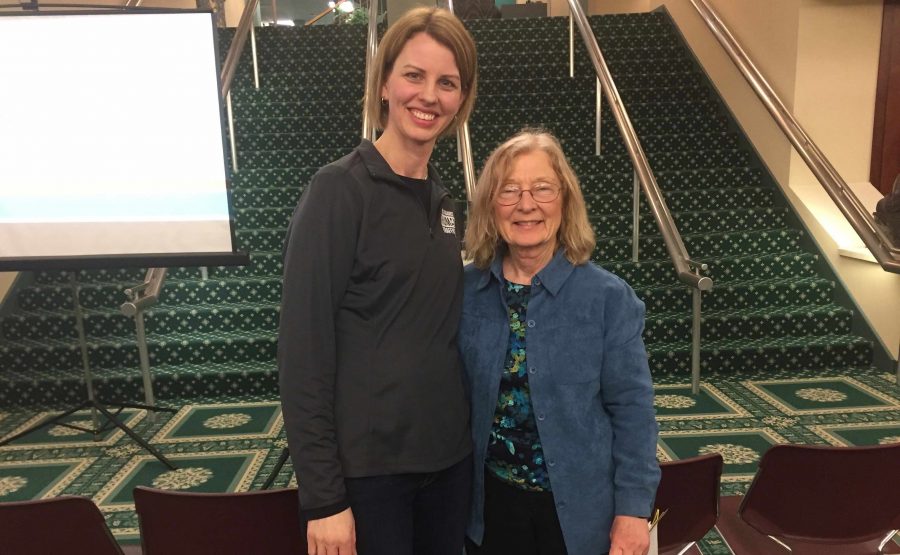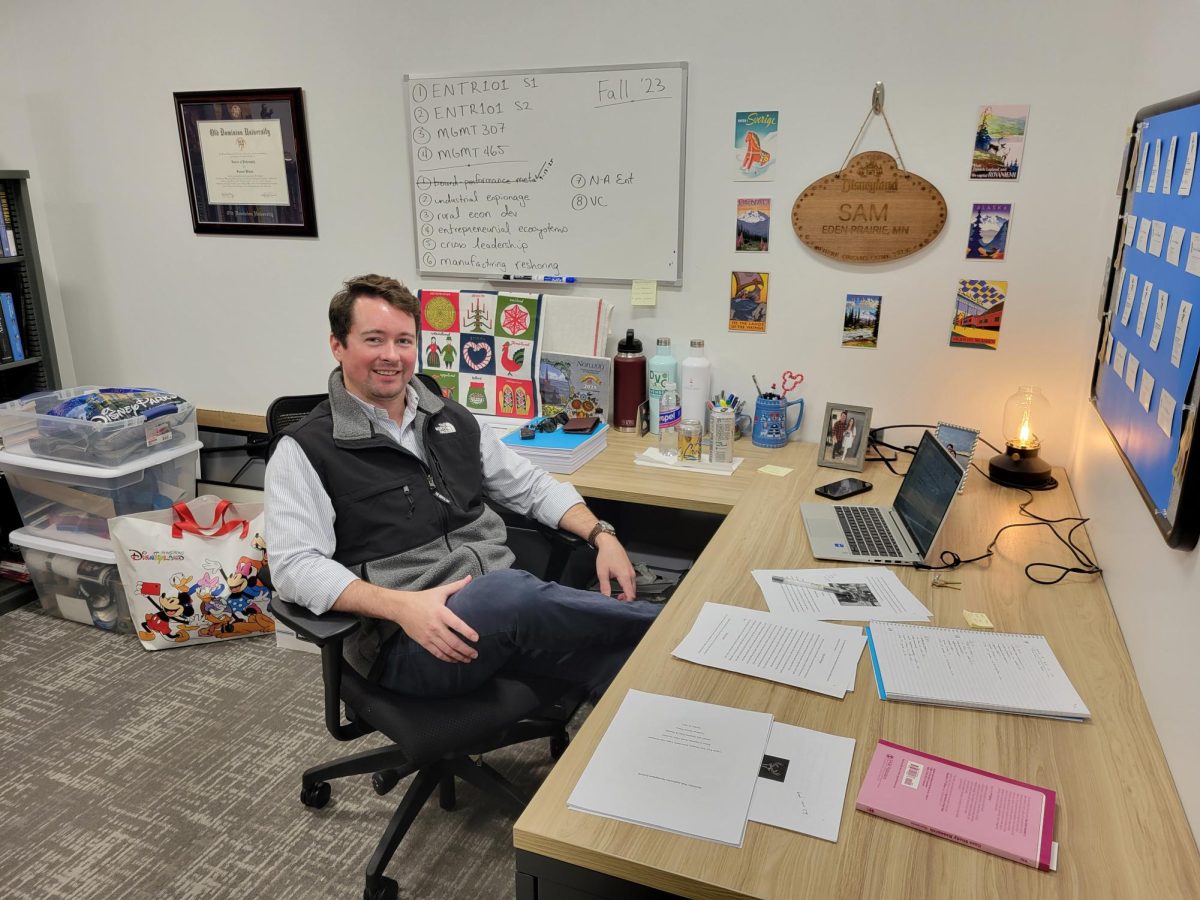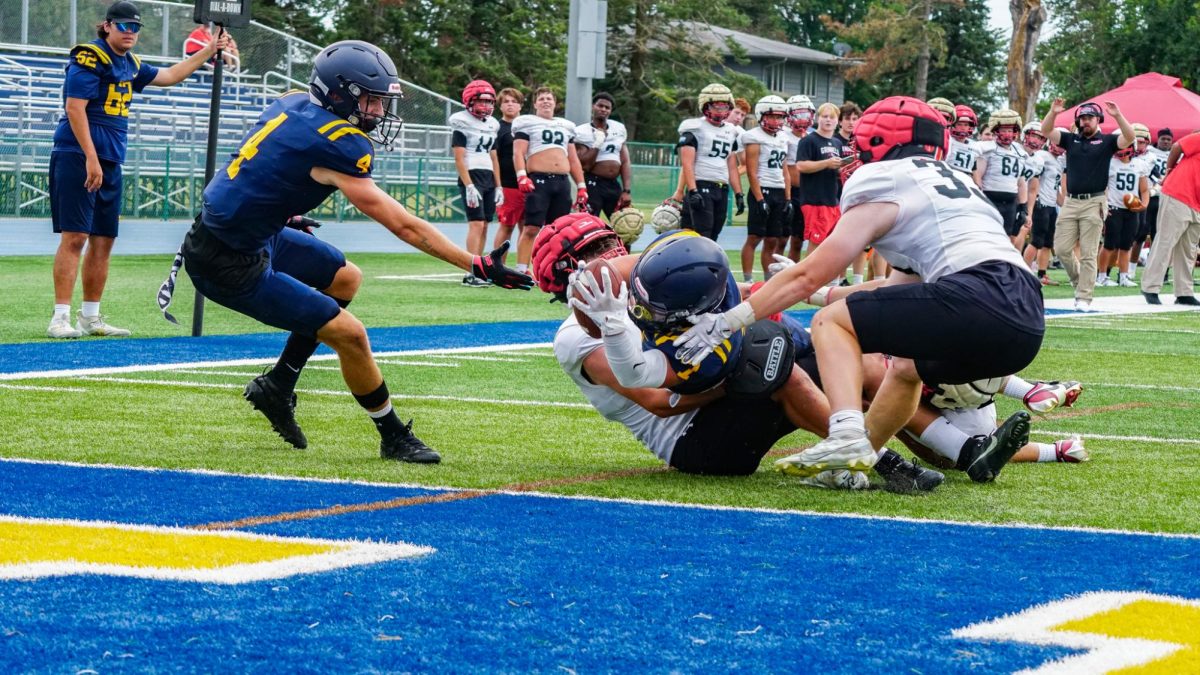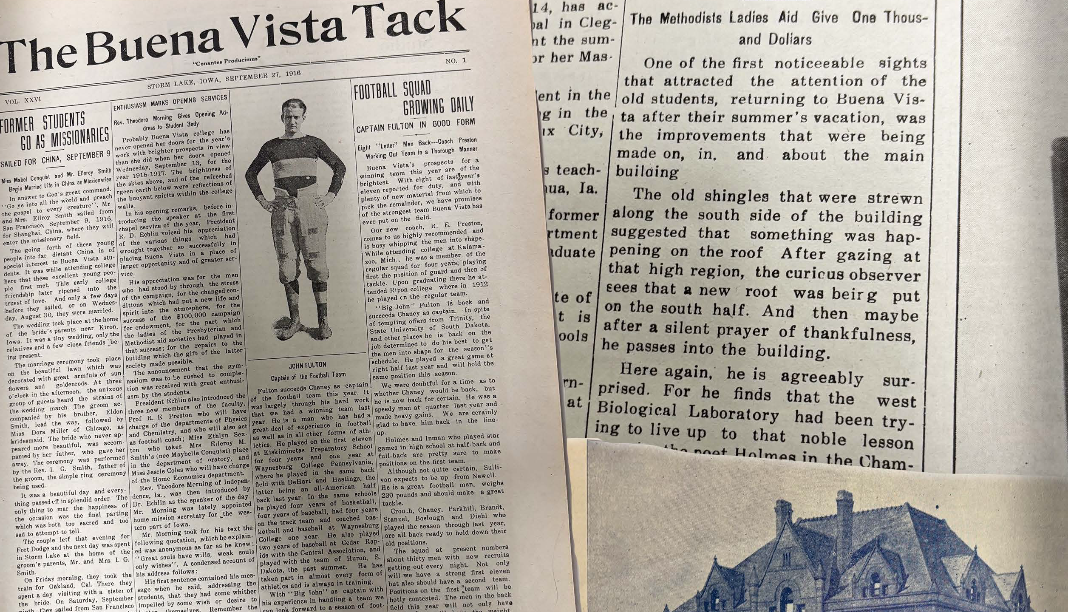Safety for Victims of Human Trafficking
April 3, 2017
On March 28, an ACES event was held in the Buena Vista University library to educate college students about human trafficking. The event was delivered by Sister Shirley Fineran, the Field Director for the Briar Cliff Social Work Program and Amber Lawrence, who is a part of the Teens Against Human Trafficking program. Amber’s goal is to prevent this life altering occurrence from happening in as many places as she can, and she is extremely driven to inform others about this horrific issue.
Amber provided an immense amount of useful facts about human trafficking and how to handle it. She travels, talking about different past situations of human trafficking, discusses what it consists of and ways to help. Human trafficking is a $150 billion worldwide industry and the second most profitable industry in the world, second only to drugs.
21 million people worldwide are victims of this awful problem. The average age of entrance into this industry in the United States is ages 11-14. There is a false stereotype that all women want to be in prostitution, which is wrong. 89% of women in prostitution say that they would get out of it if they could.
There are many myths about human trafficking. A common myth is that the victim chooses this life. Others are that prostitutes are criminals and not victims, and that it is not trafficking if the trafficker and victim are related. These are all 100% false. The victim is a VICTIM. They are conned into this life, and no matter who the trafficker is, it is a crime.
Most sales of sex happen online. In Iowa alone, there are 100-200 posts per day online for sex. It is prevalent everywhere. There are several factors that can make a victim more vulnerable to being trapped into this life. If a victim is young, LGBTQ, poor, homeless, a single mom, or prone to substance abuse, they are more likely to be pursued and captured.
Amber spoke about a case where an entire football team had sex with a girl. Her boyfriend made her do this. This sounds crazy, but most human trafficking cases do. Videos were shown with past victims speaking about their awful experiences, including one girl who had been captured out of a grocery store, and brought to Chicago to be put online for prostitution. There were many more cases with stories shown throughout Amber’s presentation.
The criminals who pursue these victims lie to them. They can be someone older with a romantic interest in a younger person. Other signs include telling the victim everything they want to hear, trying to separate the victim from friends or family, and wanting the victim to leave with them.
The criminal may want the victim to have sexual conversations and send sexual pictures. Expensive things may be given to the victim and the victim might be showered in a possible expensive lifestyle. Telling a victim of a job that is going to make them rich but not showing how is a sign of this lifestyle.
All of these things are warning signs of someone who may be trying to capture a victim for human trafficking. There are also general warning signs for people to look out for others who may be in this situation. If they are unhealthy mentally or physically and are acting different than usual or have no control over their own actions, these are generally red flags of a possible bad relationship with a criminal of human trafficking.
In school, there are more specific warning signs that may show this type of relationship. If someone suddenly starts wearing super expensive things and begins to have different relationships, this could be a sign.
If they have more than one phone, show signs of no sleep, are running away from home, travel a lot, being picked up by different people, show drug addiction or abuse, make sexual references and are promiscuous exceeding their age normalities, or have an older romantic interest, these are all signs of possible human trafficking.
If you feel that you see any of these signs, Amber wants you to help make a difference. See if people are open to talking or are being watched. It is important to say something if you see something suspicious. Call 1-888-373-7888, the National Human Trafficking Hotline, or text BEFREE, INFO or HELP to 233733 to report human trafficking.
Amber put on an extremely beneficial presentation to inform the Buena Vista University college campus about human trafficking. If you have any questions about this horrible issue, she is available through email at [email protected]. If there is someone near you who you think is a victim, do something to help. It could change a life forever.









Terri Heisterkamp • Aug 22, 2018 at 2:32 pm
Can you have Amber email me, please?
HS Counselor, Roland-Story